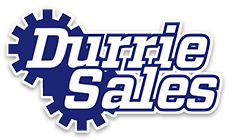Sales reps are prone to burnout at the best of times. It’s a high-pressure job.
But now, burnout is becoming an alarming new baseline. In addition to the apprehension caused by the pandemic and current political climate, sales reps have also struggled to transpose a career’s worth of in-person selling skills into video chats and phone calls.
Before you lose your best people to burnout, here are some tips for supporting your employees’ mental health.
How to Promote Mental Health in the Workplace
At Durrie Sales, we’re not just in the tool business, we are in the people business. Our salespeople are our greatest asset – to us and to the manufacturers, distributors and end-users we serve.
Here’s what we are doing these days to keep our reps feeling like their best selves.
Host the right mix of meetings
Healthy employees need face time. (Not the app. Actual face time.) So, we conduct regular meetings, each one with a different audience, focus and interval.
At our weekly team meetings, all our salespeople get into a room—actual or virtual—and discuss what’s working, what’s not working, where we are with our numbers, and where we are headed. These meetings are even more important during the pandemic because most of our sales reps are working from home as face-to-face meetings are still difficult to schedule. They need the camaraderie, feedback and encouragement that only comes with live meetings.
We also host weekly one-on-ones, where our managers get face to face with individual reps to discuss new opportunities, talk about their ups and downs, get a sense of where they are health-wise, and in other ways show that we care about and support them.
Lastly, we host a weekly Headline Meeting where the entire company is invited to attend. We also hold companywide lunches, potlucks, and other events like volunteering that encourage our team members to bond and get to know one another.
Supply the right mix of technology
The new normal is either remote work from home, or a mix of working from home and coming into the office on occasion (hybrid work).
This new normal requires new technology tools.
For us, this meant buying webcams and lighting for our staff to use when working from home. It also meant investing in an IP phone system so that calls made to our office extensions now ring on employees’ cell phones at home, and not at their vacant office desk.
Setting our employees up for work-from-home success has made us better as a company. We’ve learned to be a little bit more flexible with our employees, especially when circumstances beyond their control (kids sent home because of an outbreak at school, for example) affect how they get through their workday.
Another technology we use is Sworkit, an at home workout and fitness app. Working from home can actually make it harder to stay in a routine of healthy habits. We encourage our staff to use Sworkit as their personal trainer to help them feel sharp, strong and healthy.
Empower employees to set their schedules
Empowered employees are happy employees. And one area of their lives that our employees like to take ownership of is their work schedules. So, whenever possible, we give our employees that power. We let them decide when they will work from home and when they will work from our office. Within reason, we also let them decide their working hours (of course they have to be available for calls with customers, but if early morning or evening hours work better to catch up on emails, that’s fine too).
Offer an Employee Assistance Program
Our sales managers know how to coach and train individual sales reps to reach their potential. And we know how to mentor and motivate our sales team.
But there are some issues that our co-workers are going through these days that fall outside the scope of any sales manager’s job description.
So, at Durrie Sales, our management has implemented an Employee Assistance Program (EAP).
Now, when one of our employees reports feeling stressed, depressed or overwhelmed, or in any other way indicates that they are having a tough time coping, we remind them of our EAP and how it’s a great way to get support and help in a confidential way. (If your company has group health benefits, you may already have an EAP available.)
Our staff appreciates that we have made this resource available to them for support and help during these challenging times.
Stay ahead of burnout and stress
The time to discover that an employee is burned out is not when that employee has already completely disengaged or resigned. Staying ahead of employee stress and burnout requires a proactive approach.
Since reading a person’s mental and emotional state is impossible over email and text, and still difficult even over the phone, we meet in person or on video whenever possible. We start meetings off on a positive note with personal bests. We promote frequent, open communication so that our management and staff have a safe place where they can share what’s going on in the business and in their personal lives. We host intentional forums where anyone can mention a challenge, share a struggle, and get the support they need.
Why Mental Health Must Be a Priority for Managers
The pandemic has made many manufacturers, IMRs, and distributors realize their employees are their greatest asset. Sure, patents are valuable. Customers are valuable. Even processes are valuable. But the most valuable asset at any company is its people.
And if your sales folks are struggling with their emotional health or on the way to burnout…they’re going to have a hard time performing. That is, if they don’t leave altogether.
It goes without saying that employers should care about the mental health of their sales reps out of simple decency. But it makes good business sense as well: If your people are burning out, your company’s in trouble.
Fortunately, you’re not alone. The challenge of mental health in the workplace is on every boardroom agenda in America – so much so, that according to our friends at Grainger, a new ISO standard (45003) was developed in June 2021 to provide guidance for managing psychosocial risks in the workplace.
You need to make sure your staff feel safe, taken care of, and challenged on a daily basis. Mental health initiatives cannot be a set-it-and forget-it task. Employee mental health is something you must attend to continually, as an ongoing commitment from leadership that extends to everyone in your organization.
If you want to remain successful as a company, focus on your people. Take care of their mental health, and they will take care of you.


